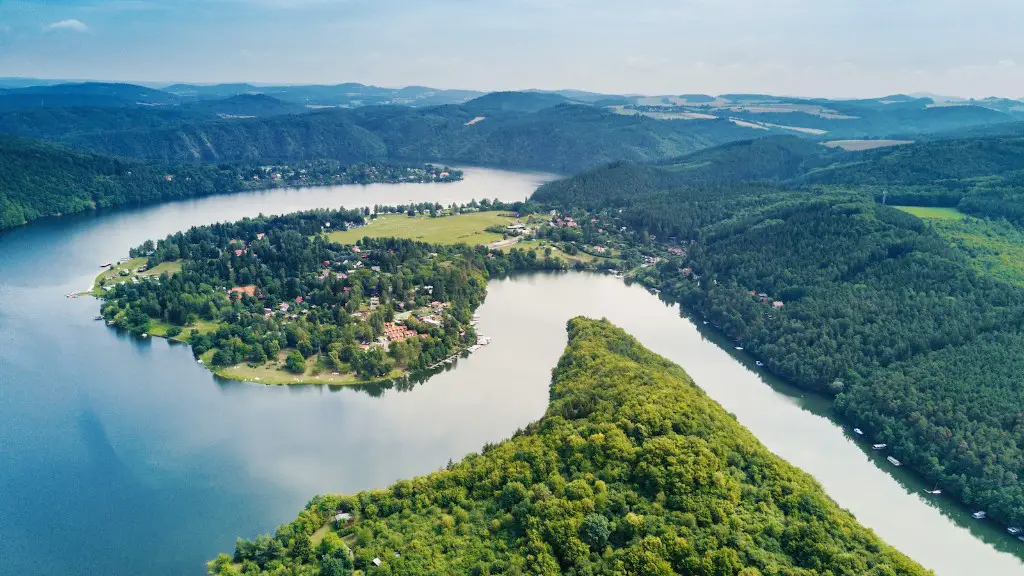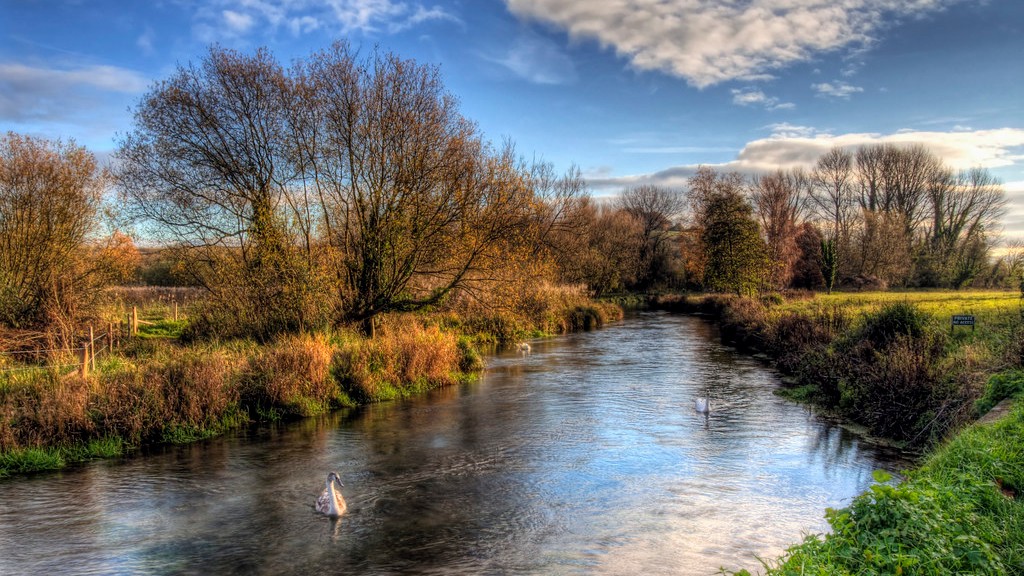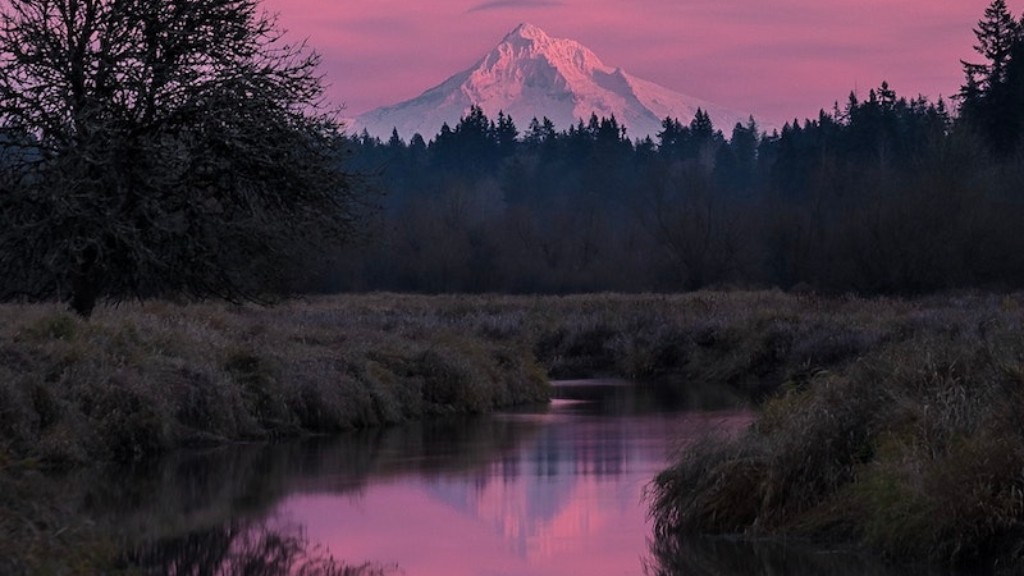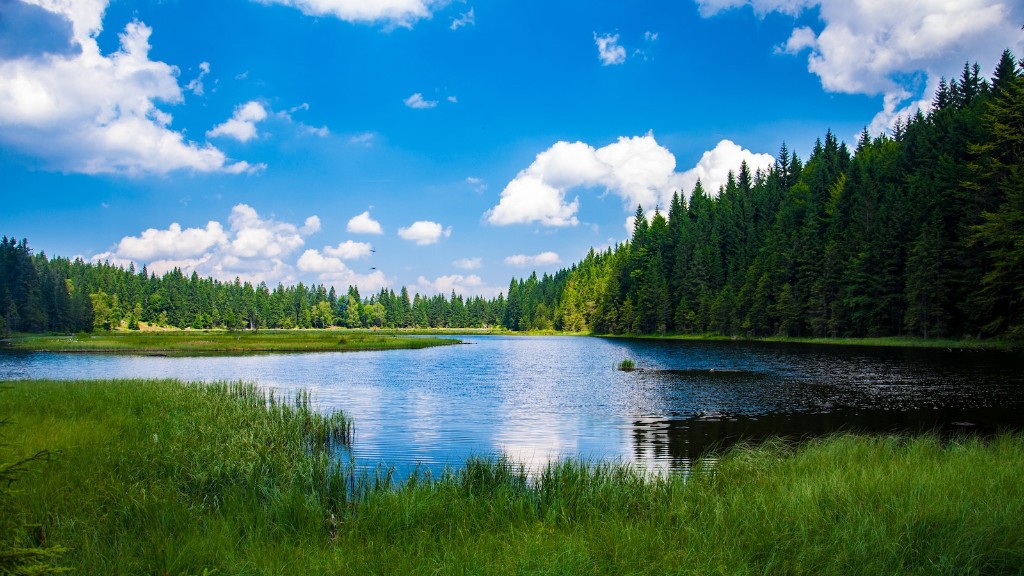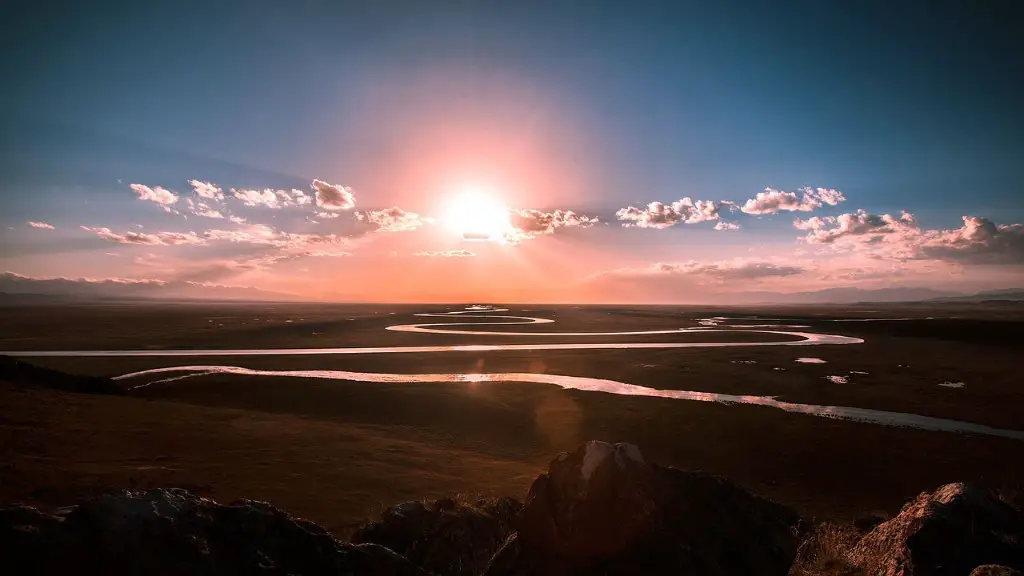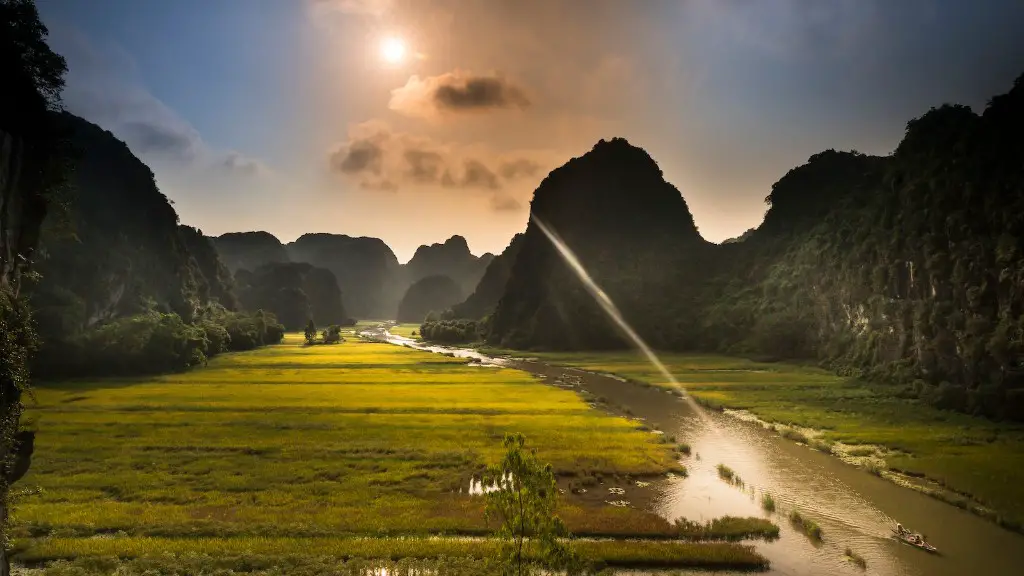The Ganges River is one of the holiest rivers in Hinduism. It is also one of the most polluted rivers in the world. The river is so polluted that it is not safe to drink from it.
No, you cannot drink from the Ganges River.
Can I drink water from the Ganges River?
The water quality analysis report submitted by the State Pollution Control Board indicates that the water of river Ganga is not fit for drinking purpose but is fit for bathing purpose. The matter was taken up on Thursday and the Board has recommended that the people should not drink the water of river Ganga.
Kashi is considered to be a holy city by Hindus and is located on the banks of the Ganges River. Every year, many Hindus make the pilgrimage to Kashi to bathe in the holy waters of the Ganges. It is believed that drinking water from the Ganga with one’s last breath will take the soul to heaven. As such, many people carry sacred water from the Ganges back to their homes in copper pots. In most Hindu families, a vial of water from the Ganga is kept in every house.
How do people not get sick from the Ganges
There is a belief among many people that locals who bathe in a river have built up an immunity to the river’s bacteria. However, this is nothing more than a myth according to Sue Lennox, chief executive of OzGreen. People can still get sick from bacteria in the river, even if they have been exposed to it for a long time. It is important to always practice good hygiene and safety when around water, regardless of how clean it may appear.
Cholera is a serious problem in many parts of the world, particularly in developing countries. The disease is caused by a bacteria called Vibrio cholerae, which is found in contaminated water and food. Cholera can be deadly if not treated promptly, as it can lead to severe dehydration and death. most cholera epidemics occur in areas with poor sanitation and lack of access to clean water.
The Ganges delta in India is one of the most populous areas in the world, and it is also one of the areas most affected by cholera. In fact, most of the world’s cholera epidemics can be traced back to this region. The problem is exacerbated by the fact that the Ganges river is used for both drinking and bathing, and is also where many people defecate. This contaminated water then spreads the disease to other people.
There are several ways to prevent cholera, including ensuring that food and water are clean and safe, practicing good hygiene, and getting vaccinated. However, the best way to prevent the spread of cholera is to improve sanitation and access to clean water in developing countries.
Why is Ganga water not dirty?
The scientific reason is that water of river Ganga is naturally having bacteriophages, which do not allow bacterial growth. This is the reason why the water of river Ganga is considered to be pure and holy.
The Chief Minister’s remarks came during the ‘Ganga Aarti’ at the Dashashwamedh Ghat in Varanasi.
Adityanath said that the Ganga was not clean earlier, but the Namami Gange scheme of the Centre has improved its condition.
He said that the state government was also working on cleaning the river.
The Chief Minister said that the Ganga was the lifeline of the country and efforts were being made to make it pollution-free.
Does the Ganges stink?
The river stinks because of the untreated sewage and effluents from tanneries that flow into it. This is especially a problem during the Kumbh Mela when 200km downstream, people are taking a holy dip in the river. The tanneries should be closed during this time to spare the bathers from the toxic effects of the chromium in the effluents.
Waterborne illnesses are a leading cause of death in India, and pollution is a major contributing factor. Experts believe that the high rate of waterborne illnesses in India is due to the pollution in rivers like the Ganga. In addition, researchers have found the emergence of so-called superbugs in Ganges water samples. These are bacteria that are resistant to most commonly used antibiotics. This is a serious concern, as it means that these superbugs could spread to other areas and cause even more illness and death.
What happens if you drink gangajal
The book ‘Ganga Rahi Pukaar’ says that when a person on death bed drinks ‘Gangajal’, it reduces his pain, gives “peace” to the soul after death, and brings “moksha”. It is important to note that this is only one book’s opinion on the matter, and further research is needed to confirm these claims.
Hindus believe that the cycle of death and rebirth is a result of accumulated sin in past and present lives. They believe that bathing in the Ganges river on the most auspicious day of the festival can cleanse them of their sins and help break the cycle.
Which is the dirtiest river in India?
The Yamuna is one of the most sacred rivers in India and is also one of the most polluted. The river flows for 855 miles from its source in the Himalayas to its final destination in the Bay of Bengal. Along the way, the Yamuna passes through the bustling metropolis of New Delhi.
Due to the large population and rapid industrialization in and around New Delhi, the Yamuna has become one of the most polluted rivers in the world. Studies have shown that the river contains dangerously high levels of lead, mercury, and other heavy metals. These pollutants come from a variety of sources, including factories, power plants, automobiles, and sewage.
The pollution of the Yamuna has had a devastating impact on the river’s ecosystem. Fish and other aquatic life have been virtually eliminated from the river. The groundwater in the area has also been contaminated.
The Yamuna is an important source of water for millions of people living along its banks. The pollution of the river has thus had a serious negative impact on the health and wellbeing of these communities.
There is an urgent need to address the pollution of the Yamuna River. A variety of measures, including better treatment of sewage and industrial waste, stricter environmental regulations, and
This is good news for the rivers, but it also means that the glaciers won’t be providing much of a contribution to the water supply once they’re gone. The paper concludes that the glaciers are in a ” irreversible ” state and that their disappearance is “likely inevitable.”
Is Ganges river dirtiest
The Ganges is a river that is located in India. The river is considered to be the fifth-most polluted river in the world. An Indian photographer has noted that no one in India spoke of the Ganges as being polluted until the late 1970s. However, pollution had been an old and continuous process in the river by the time people were finally acknowledging it.
Bathing in the Ganga can expose people to high levels of faecal coliform bacteria. These bacteria can cause serious gastrointestinal illness, skin infections and other serious health problems. It is therefore important to take precautions when bathing in the river, such as avoiding swallowing any water, and ensuring that any open wounds are covered.
What happens when you bathe in Ganges river?
Bathing in the Ganges is an ancient Hindu ritual that is thought to purify the soul and wash away the sins of the penitent. Spreading ashes in the water upon death is believed to improve one’s karma and hasten salvation.
The Thames River in London is the cleanest river in the world! The river is simply remarkable and absolutely spotless. London’s pride and icon, the Thames River is a must-see for all visitors to the city.
Why Ganga water is so special
This is an interesting finding, as it suggests that the water of the Ganga river may have some natural protection against bacteria. It is possible that the presence of these bacteriophages helps to keep the water clean and free of harmful bacteria. This is a good example of how nature can provide some protection against disease and illness.
It was always believed that the Ganga water had some special power and now it is scientifically validated. The Indian scientists have found the scientific basis of the mysterious ‘special power’ of the Ganga water. It is said that the Ganga water has the power to cleanse the body and soul and it is also a healing water.
Warp Up
No, it is not safe to drink from the Ganges River. The river is contaminated with pollutants, including human waste, industrial chemicals, and agricultural runoff. These pollutants can cause serious health problems, including diarrhoea, cholera, and dysentery.
No, you cannot drink from the Ganges River. The water is full of pollutants and is not safe to consume.
